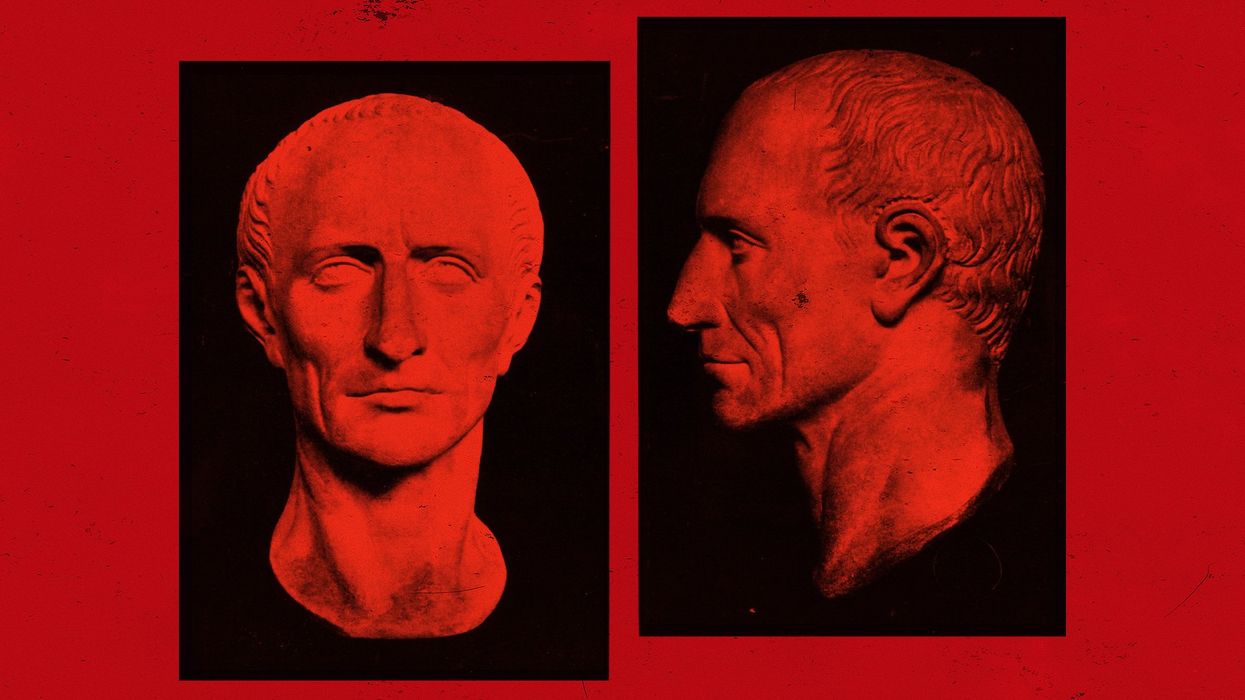
Getty Images

Having read the Guardian of London’s recent sensationalized story about political theorists associated with the Claremont Institute in California, I had to wonder on what planet reporter Jason Wilson is living. According to Wilson, the Claremont faction want “red Caesarism” because they are right-wing extremists who are still upset that their would-be Caesar, Donald Trump, was deservedly defeated in 2020. It may be that what I think I’m observing — e.g., public administrators, Democratic operatives, and the media working to disempower and marginalize their conservative opposition and government-backed attempts to indoctrinate the young in transgender ideology — is a figment of my imagination. Perhaps like the left’s version of Trump, the Claremonters do pose “a profound threat to American democracy” because of their “attraction to autocracy."
Yes, I’m only joshing!
For the record, I find no evidence of wackiness in the critical views of Michael Anton, which Wilson quotes to prove the opposite. Anton is correct that America now looks far less like a constitutional republic than was once the case. What is more, most of the political changes I’ve been observing in recent years appall me. I don’t know Kevin Slack at Hillsdale College, whom Wilson also scolds for making “conspiratorial and extreme arguments now common on the antidemocratic right.” But what this fellow says in his “book-length polemic” seems incontrovertibly true: “Transgenderism, anti-white racism, censorship, cronyism ... are now the policies of an entire cosmopolitan class that includes much of the entrenched bureaucracy, the military, and the government-sponsored corporations.”
Wilson doesn’t refute these charges (perhaps because he can’t) but spews out righteous anger that anyone would be politically incorrect enough to make them. He also introduces us to Damon Linker, “a senior lecturer at the University of Pennsylvania,” who warns us against “the extreme Right’s drift toward Caesarism.” As a onetime academic, I couldn’t imagine a senior lecturer in politics at an Ivy League institution with an instinct for professional survival who would be saying anything else about conservatives. Not at all to my surprise, Linker doesn’t bother to show why Slack is wrong about the power elite in this country and in most other countries that resemble ours. Of course, it’s highly unlikely that Wilson’s pal would hold a position at the university where he teaches if he published views similar to those of Slack. Could we imagine what would happen to Linker professionally if he did?
Both Wilson and Linker scorn Michael Anton’s observations that “the universities have become evil,” “our economy is fake,” “the people are corrupt,” and “our civilization has lost the will to live.” Whether one agrees or not with these opinions, which seem to have been ripped out of context, where is Anton’s call for “red Caesarism,” aka a right-wing dictatorship? One can hold all his positions without believing that an authoritarian rightist government is a workable solution to our current political or cultural situation.
The closest to a confirmation of this contention that Linker and Wilson can find is the proposal for a “Christian prince” in Stephen Wolfe’s book “The Case for Christian Nationalism.” Having read the book in question, I find nothing more sinister there than the appeal to leadership that would reverse the moral-sexual revolution that political and media elites have inflicted on this country since the middle of the last century.
Let me lay all my cards on the table: If Wolfe’s plan for moral restoration were feasible, I would strongly support it. Unfortunately, I doubt it could be implemented right now. Cultural radicals have been hard at work for decades here and in other Western countries transforming political and social institutions. Effective right-wing pushback was minimal throughout this period for various reasons. The right allowed itself to be easily intimidated, and so it ceded institutions to the left while slowly adopting leftist rhetoric and leftist talking points.
Most of what was a harder right devoted itself for decades to anti-communism while shortchanging the cultural wars at home. American conservatives also became preoccupied with budgetary questions and deregulation plans. Moreover, the neoconservative establishment has been fixed for the last 40 years on defending “American democracy” and trying to export it around the world. This mission presupposed that our own society was in good order and not being convulsed by a cataclysmic takeover from the cultural left.
In short: However limited its opportunities may have been, the American right did a bad job in resisting the left’s takeover. In the cultural wars and in its attempts to preserve limited constitutional government, the conservative establishment and those who led it proved themselves woefully deficient.
The younger conservatives whom Wilson and the Guardian grossly misrepresent are calling attention to what should have been the main priority of the right all along. I wish to commend them for their critical work, even if it’s arriving late in the game and our side is down by several touchdowns. If nothing else, the scholars and writers at the Claremont Institute are underlining long-neglected problems that any serious right will have to engage.
Paul Gottfried